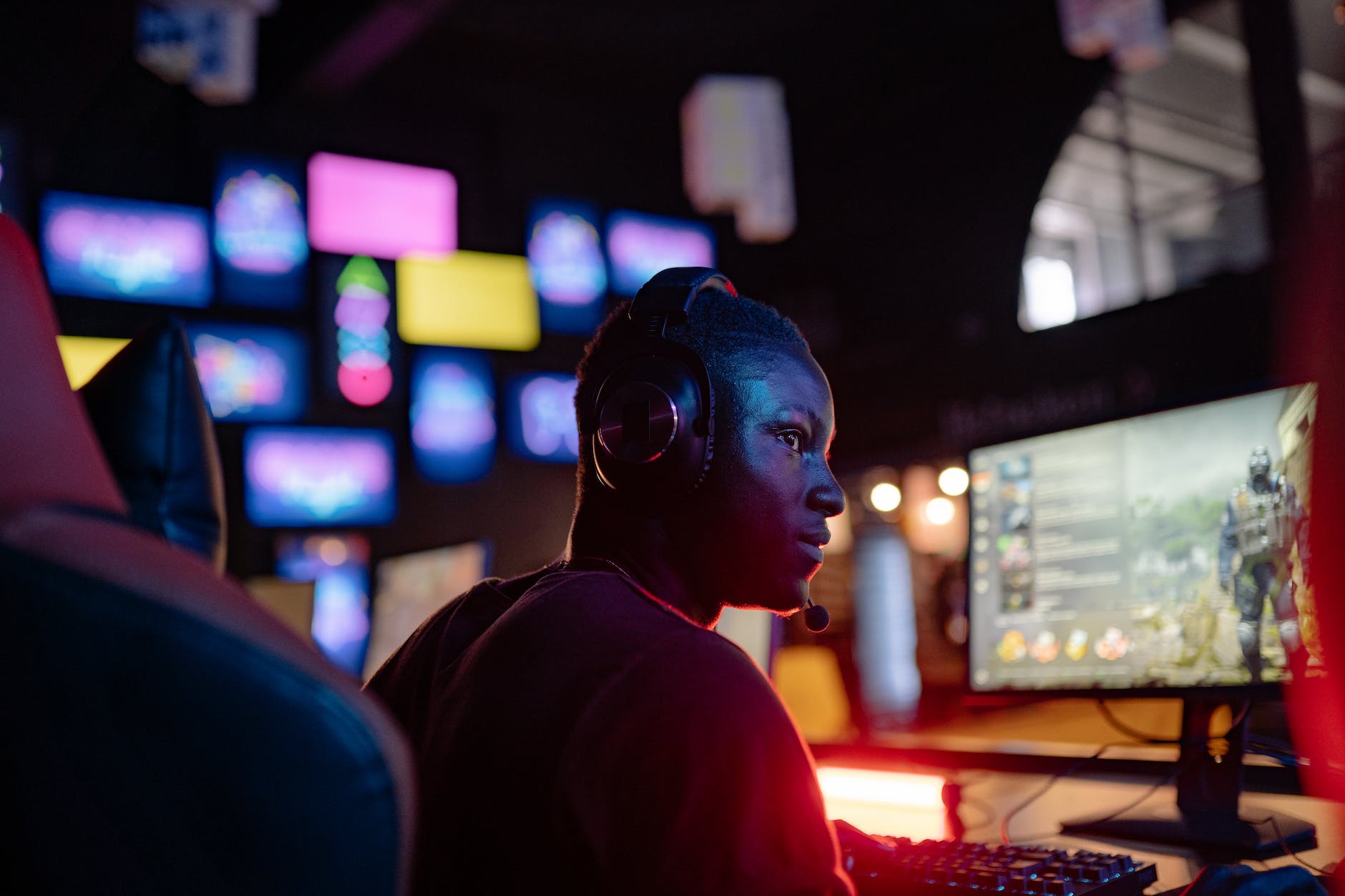The digital world has seen an astonishing transformation in recent years, with Generation Esports standing as a testament to this metamorphosis. As an avid gamer and follower of the eSports scene, I have observed the industry’s evolution from a mere hobby or pastime into a fully-fledged professional sports industry. Generation Esports, the collective term for the wave of gamers who have grown up with this phenomenon, is not only a trend but a revolution that’s reshaping the dynamics of the gaming industry.
This revolution is not an overnight occurrence. It was born from the convergence of technology, societal shifts, and the intrinsic human love for competition. Its roots can be traced back to the gaming tournaments of the 70s and 80s, but it has grown exponentially over the past two decades. The advent of online gaming, coupled with the increasing accessibility of high-speed internet, has paved the way for the rise of Generation Esports.
In this blog, I hope to delve into the intricacies of Generation Esports, exploring its growth, its impact on the gaming industry, the key players driving this revolution, and the challenges and opportunities it presents. I also aim to shed light on its future prospects and the role it plays in shaping the future of gaming.
The Growth and Rise of Generation Esports
The growth of Generation Esports has been nothing short of spectacular. From the early days of LAN parties and small-scale tournaments, the scene has expanded into a global phenomenon that attracts millions of spectators and generates billions in revenue. The rise of Generation Esports can be attributed to several factors, including technological advancements, the proliferation of gaming culture, and a shift in societal attitudes towards gaming.
Over the past decade, the gaming industry has seen a surge in popularity, with eSports at the forefront of this growth. The rise of streaming platforms like Twitch and YouTube, along with the integration of eSports into mainstream sports broadcasting, has boosted the visibility and reach of eSports, attracting a new generation of fans and players. This growth has been further propelled by the increasing acceptance of eSports as a legitimate form of entertainment and competition.
However, the rise of Generation Esports is not just about numbers. It’s about a profound shift in the way we perceive and engage with video games. This new generation of gamers is not content with being passive consumers; they want to be active participants, competitors, and even creators. They see gaming not just as a pastime but as a platform for self-expression, community building, and even a viable career path.

Understanding the Esports Industry
The eSports industry is a complex ecosystem comprised of various stakeholders, including game developers, tournament organizers, teams, players, sponsors, and fans. Understanding this ecosystem is crucial to grasping the scale and significance of Generation Esports.
Game developers are the backbone of the eSports industry, creating the games that form the basis of competition. They play a critical role in shaping the eSports landscape, with their decisions on game design, balance, and competitive structure directly affecting the viability and popularity of their games as eSports.
Tournament organizers are the ones who bring the competition to life, organizing events and leagues that bring together the best players and teams from around the world. These events range from small local tournaments to international championships with multi-million dollar prize pools.
Teams and players are the stars of the eSports scene, attracting fans with their skill, charisma, and dedication. They invest countless hours into honing their skills, strategizing with their teammates, and competing at the highest level. Their successes and struggles form the narratives that captivate fans and drive the industry forward.
Sponsors and advertisers provide the financial support that fuels the industry, investing in teams, events, and broadcasts in return for exposure to the eSports audience. They range from traditional sports brands to tech companies and even non-endemic brands looking to tap into the eSports demographic.
Finally, the fans are the lifeblood of the eSports industry. Their passion and support drive the growth and sustainability of the industry. They tune into broadcasts, attend events, buy merchandise, and engage with their favorite teams and players on social media. Without them, there would be no Generation Esports.
The Impact of Generation Esports on the Gaming Industry
The impact of Generation Esports on the gaming industry is profound and far-reaching. It has not only changed the way games are designed and marketed but also the way they are consumed and perceived.
One of the most significant impacts is on game design. Developers are now designing games with eSports in mind, incorporating features that facilitate competitive play and viewing. This includes balanced and skill-based gameplay, spectator modes, and integrated tournament systems.
The marketing of games has also seen a shift, with eSports becoming a key promotional tool. Developers and publishers are investing in eSports tournaments and leagues as a way to promote their games and engage with their player base. They are also partnering with eSports teams and influencers to reach a broader audience and boost their brand.
On the consumption side, eSports has transformed gaming from a solitary activity into a social and communal experience. Fans are not just playing games; they are watching them, discussing them, and even creating content around them. This has led to the rise of streaming platforms, gaming communities, and fan-generated content, all of which contribute to the vibrant and dynamic culture of Generation Esports.
Moreover, the rise of eSports has challenged traditional notions of what constitutes a sport and who can be an athlete. It has brought gaming into the mainstream, validating it as a legitimate form of competition and entertainment. This shift in perception has opened up new opportunities for gamers, from professional eSports careers to scholarships for collegiate eSports.
“Generation Esports, founded in 2012, is the vibrant heartbeat of the competitive gaming scene, a dynamic home for tournaments and gaming communities. It’s a battleground where skills are tested, champions are born, and the spirit of competition thrives.”
How Generation Esports is Revolutionizing Gaming
Generation Esports is revolutionizing gaming in several ways, from transforming the player experience to reshaping the industry landscape.
One of the most apparent ways is through the professionalization of gaming. The eSports scene mirrors traditional sports in many ways, from structured leagues and tournaments to contracted players and coaches. This professionalization has elevated the status of gamers and made gaming a viable career option for many.
Another way is through the democratization of gaming. eSports has opened up the world of competitive gaming to a wider audience, breaking down barriers of accessibility and inclusivity. With the rise of online tournaments and platforms, anyone with a stable internet connection can participate in eSports, regardless of their location, gender, or socioeconomic status.
Moreover, Generation Esports is driving innovation in the gaming industry. The demand for high-quality games, broadcasts, and infrastructure is pushing developers, platform providers, and hardware manufacturers to innovate and improve. This has resulted in advancements in game design, streaming technology, and gaming hardware, enhancing the player and spectator experience.
Finally, Generation Esports is fostering a sense of community and identity among gamers. The shared passion for games, competition, and camaraderie has fostered a sense of belonging and identity among gamers. This sense of community is not confined to local or national boundaries but extends globally, bridging cultural and geographical divides.
Key Players in Generation Esports
There are numerous key players in Generation Esports, each contributing to the growth and development of the industry in their own way.
Game developers like Riot Games, Valve, and Blizzard are instrumental in creating and maintaining the games that form the basis of eSports. Their commitment to competitive integrity, community engagement, and continuous improvement has set the standard for eSports titles.
Tournament organizers such as ESL, DreamHack, and MLG have played a pivotal role in elevating eSports to a professional level. They have not only organized high-profile tournaments but have also pioneered innovative formats and production techniques that have shaped the eSports viewing experience.
Teams like Team Liquid, Cloud9, and Fnatic, along with their players, have become the face of eSports, drawing fans with their skill, personality, and storylines. Their investment in player development, infrastructure, and branding has raised the bar for eSports teams.
Broadcasters and platforms like Twitch, YouTube Gaming, and ESPN have revolutionized the way we consume eSports, providing platforms for live streaming, VoD, and content creation. Their contribution to the visibility and accessibility of eSports cannot be overstated.
Sponsors and advertisers, including brands like Intel, Red Bull, and Mercedes-Benz, have provided the financial support that allows the industry to thrive. Their involvement has not only injected much-needed funds into the industry but has also lent legitimacy to eSports in the eyes of the public.
Lastly, the fans are arguably the most important players in Generation Esports. Their passion, engagement, and loyalty are the driving force behind the growth and sustainability of the industry.

Future Prospects of Generation Esports
The future prospects of Generation Esports are bright, with several trends indicating continued growth and evolution.
One of the most promising trends is the increasing mainstream acceptance of eSports. As societal attitudes towards gaming continue to shift, we can expect to see more integration of eSports into mainstream culture and media, further boosting its visibility and reach.
Another trend is the increasing professionalization of eSports. As the industry matures, we can expect to see more structure and regulation, similar to traditional sports. This includes standardized contracts, player unions, and governing bodies, which will provide more stability and protection for players and teams.
The introduction of new technologies, such as VR and AR, also presents exciting opportunities for eSports. These technologies have the potential to revolutionize the player and spectator experience, offering new ways to play and watch eSports.
The expansion into new regions and demographics is another promising prospect. As eSports continues to grow, we can expect to see more representation and inclusivity, with more opportunities for underrepresented groups and regions.
Lastly, the increasing investment in eSports, both from endemic and non-endemic brands, indicates a promising financial future for the industry. This investment will fuel the growth and development of the industry, enabling it to reach new heights.
Challenges and Opportunities in Generation Esports
Like any burgeoning industry, Generation Esports faces several challenges, but these challenges also present opportunities for growth and improvement.
One of the main challenges is the issue of player welfare. The demanding nature of professional gaming, coupled with the lack of regulation and support structures, has raised concerns about player burnout, mental health, and career longevity. However, this challenge presents an opportunity to improve player welfare through measures such as player unions, mental health resources, and career transition support.
Another challenge is the sustainability of the eSports business model. The industry relies heavily on sponsorship and advertising revenue, which can be volatile and unreliable. This challenge presents an opportunity to diversify revenue streams through avenues such as media rights, merchandise, and fan engagement initiatives.
The lack of diversity in eSports is another challenge, with the underrepresentation of women and minorities in both players and audiences. This challenge presents an opportunity to promote diversity and inclusivity in eSports through initiatives such as women’s leagues, diversity scholarships, and community outreach programs.
The rapid growth of eSports also presents a challenge in terms of infrastructure and regulation. The industry needs to keep up with its growth in terms of infrastructure, such as venues, broadcast technology, and internet connectivity, as well as regulation, such as fair play, doping, and dispute resolution. This challenge presents an opportunity to invest in infrastructure and regulation, which will not only address these issues but also contribute to the professionalization and legitimacy of eSports.
Finally, the issue of game longevity is a challenge, with the popularity of eSports titles often fluctuating and games becoming obsolete. This challenge presents an opportunity to focus on game design and community engagement to ensure the longevity and relevance of eSports titles.
The Role of Generation Esports in Shaping the Future of Gaming
Generation Esports plays a crucial role in shaping the future of gaming. Its influence extends beyond the eSports scene and permeates the broader gaming industry, driving trends, shaping perceptions, and pushing boundaries.
One of the key ways it shapes the future of gaming is through the professionalization of gaming. The rise of eSports has elevated gaming to a professional level, setting a new standard for competitive gaming and opening up new career paths for gamers.
Another way is through the democratization of gaming. eSports has made competitive gaming accessible to a wider audience, breaking down barriers and fostering inclusivity. This trend is likely to continue, with the potential to reach new demographics and regions.
Generation Esports is also driving innovation in the gaming industry. The demand for high-quality games, broadcasts, and infrastructure is pushing the industry to innovate and improve, paving the way for advancements in technology and design.
Moreover, Generation Esports is shaping the cultural and societal perception of gaming. It is challenging traditional notions of what constitutes a sport and who can be an athlete, validating gaming as a legitimate form of competition and entertainment.
Conclusion
Generation Esports is a revolution that’s reshaping the gaming industry. It’s a testament to the power of technology, the allure of competition, and the passion of the gaming community. It’s a phenomenon that’s transforming gaming from a solitary pastime into a global spectacle and from a hobby into a profession.
The growth of Generation Esports is not just a trend but a testament to the transformative power of gaming. It’s an industry that has grown from grassroots tournaments to a global phenomenon, captivating millions of fans, attracting billions in investment, and revolutionizing the gaming industry.
But beyond the numbers, the rise of Generation Esports is about a shift in the way we perceive and engage with video games. It’s about a generation of gamers who are not just consumers but participants, competitors, and creators. It’s about a community that’s united by a shared passion, a culture that transcends borders, and a sport that’s redefining the boundaries of competition.
As we look to the future, the prospects of Generation Esports are bright. With increasing acceptance, professionalization, and innovation, along with expanding opportunities for diversity and inclusivity, the future of eSports is promising. But as with any burgeoning industry, it also faces challenges, from player welfare and sustainability to diversity and regulation. These challenges present opportunities for growth and improvement, and with the collective effort of the eSports community, I am confident that we can overcome them.
In the end, the story of Generation Esports is not just about gaming but about people – the players, the fans, the developers, the broadcasters, the sponsors, and everyone else who contributes to this vibrant and dynamic community. It’s a story of passion, competition, and community, and I am excited to see how it unfolds.
In the meantime, let’s game on!
Unraveling the Brilliance of Diamond Rap Albums: A Deep Dive
The Role of Virtual Reality in Future Entertainment








